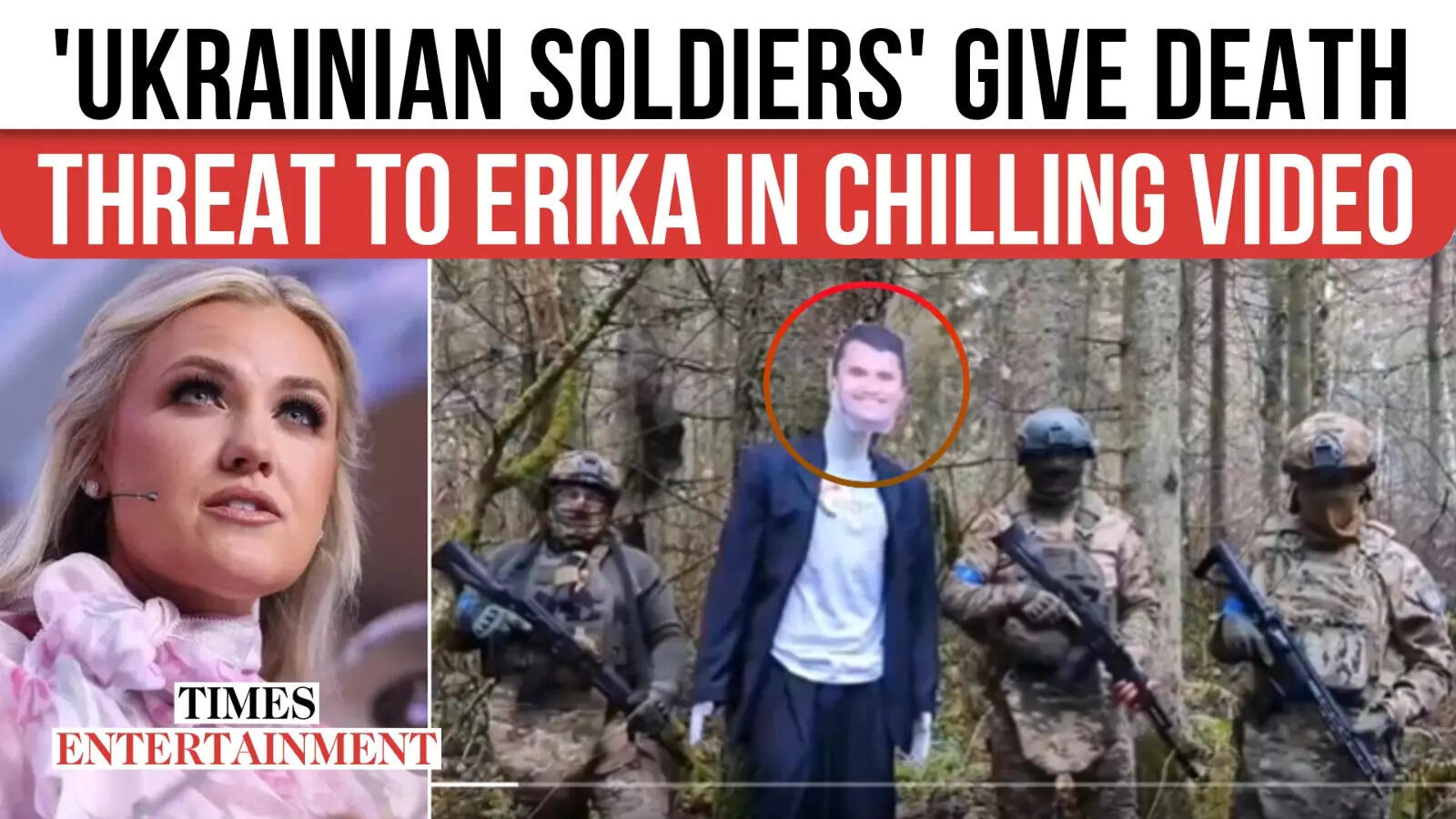Politics
Ukrainian Soldiers’ Viral Video Targets Erika Kirk Over Aid Stance

A disturbing video has surfaced online, allegedly featuring Ukrainian soldiers issuing threats directed at Erika Kirk, the widow of conservative commentator Charlie Kirk. The clip, which shows a mannequin resembling Charlie Kirk being decapitated, warns Erika Kirk to “watch her neck” if she continues to support her late husband’s anti-U.S. aid position towards Ukraine.
The video has ignited fierce debate among viewers, with many questioning its authenticity. Critics argue it could be staged propaganda aimed at discrediting opposition to military aid. As discussions intensify, the clip has drawn widespread outrage, highlighting the growing tensions surrounding the ongoing conflict in Ukraine.
Context of the Controversy
The backdrop of this video is a contentious political landscape in the United States, where opinions on aid to Ukraine are sharply divided. Charlie Kirk, a prominent figure known for his conservative views, had previously advocated against increased U.S. support for Ukraine. His stance has attracted both supporters and detractors, particularly as the situation in Ukraine continues to evolve.
The graphic nature of the video has prompted reactions from across the political spectrum. Many have condemned the act as a form of intimidation, raising concerns about the implications for freedom of speech and political dissent. The chilling imagery of a mannequin being decapitated serves as a stark reminder of the lengths to which some may go to silence opposition.
Global Reactions and Implications
As the video circulated on social media, it elicited a mix of shock, anger, and disbelief. Commentators across various platforms expressed their dismay, with some calling for accountability regarding the creators of the video. The incident underscores the increasingly blurred lines between digital expression and political intimidation in the age of social media.
Internationally, the video has sparked discussions about the impact of propaganda in modern conflicts. Analysts emphasize the need for critical media literacy, particularly in recognizing manipulated content designed to provoke emotional responses. The situation reflects broader concerns about how digital platforms can be used to influence public opinion and shape political narratives.
As the situation continues to develop, the implications of this video extend beyond Erika Kirk and her family. It highlights the challenges faced by individuals who voice dissenting views in politically charged environments. The reactions to the video may further polarize opinions on U.S. involvement in Ukraine, leading to increased scrutiny of similar content in the future.
In conclusion, the viral video involving Erika Kirk serves as a potent example of the intersection between politics and digital warfare. As global reactions unfold, the incident raises essential questions about the role of media in shaping political discourse and the potential consequences of threatening messages in a democratic society.
-

 World5 months ago
World5 months agoSBI Announces QIP Floor Price at ₹811.05 Per Share
-

 Lifestyle5 months ago
Lifestyle5 months agoCept Unveils ₹3.1 Crore Urban Mobility Plan for Sustainable Growth
-

 Science4 months ago
Science4 months agoNew Blood Group Discovered in South Indian Woman at Rotary Centre
-

 World5 months ago
World5 months agoTorrential Rains Cause Flash Flooding in New York and New Jersey
-

 Top Stories5 months ago
Top Stories5 months agoKonkani Cultural Organisation to Host Pearl Jubilee in Abu Dhabi
-

 Sports4 months ago
Sports4 months agoBroad Advocates for Bowling Change Ahead of Final Test Against India
-

 Science5 months ago
Science5 months agoNothing Headphone 1 Review: A Bold Contender in Audio Design
-

 Top Stories5 months ago
Top Stories5 months agoAir India Crash Investigation Highlights Boeing Fuel Switch Concerns
-

 Business5 months ago
Business5 months agoIndian Stock Market Rebounds: Sensex and Nifty Rise After Four-Day Decline
-

 Sports4 months ago
Sports4 months agoCristian Totti Retires at 19: Pressure of Fame Takes Toll
-

 Politics5 months ago
Politics5 months agoAbandoned Doberman Finds New Home After Journey to Prague
-

 Top Stories5 months ago
Top Stories5 months agoPatna Bank Manager Abhishek Varun Found Dead in Well









